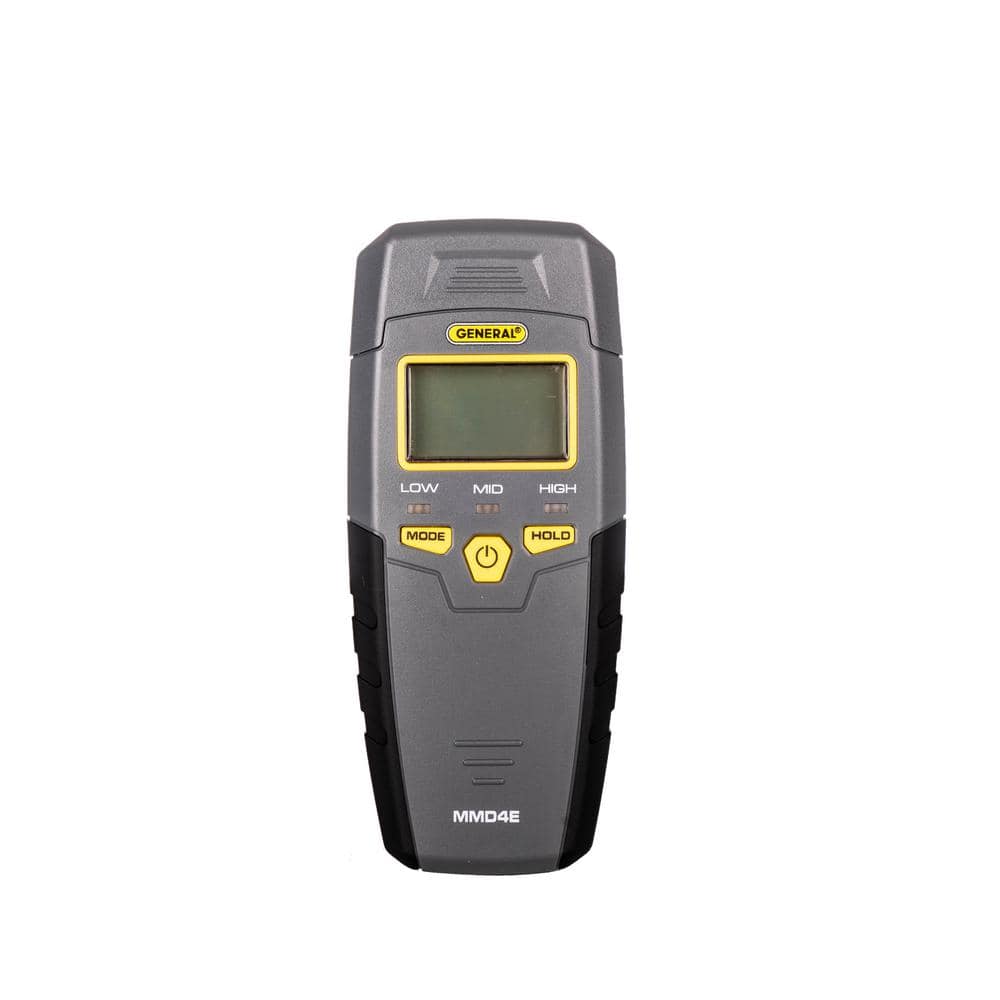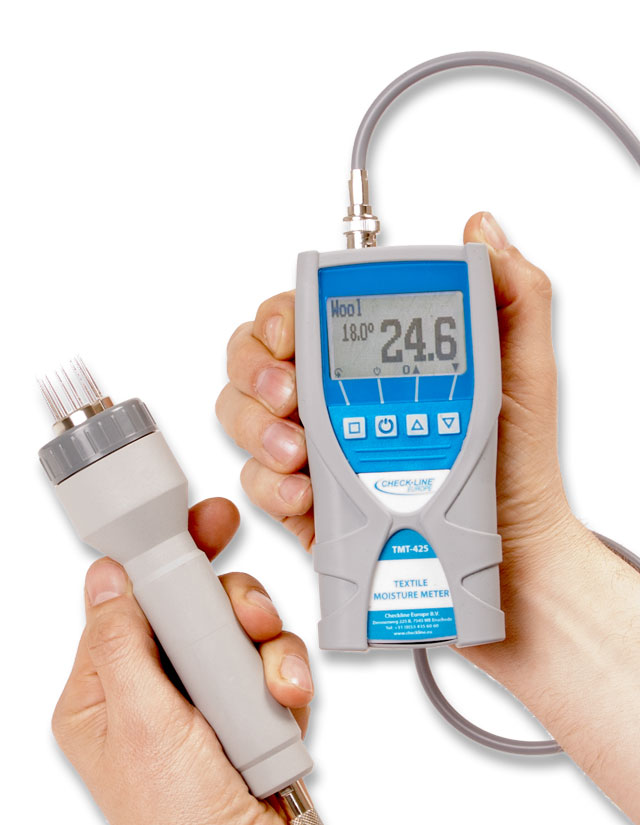Moisture Meter Purchasing Guide: What to Search for in High-Quality Instruments
Moisture Meter Purchasing Guide: What to Search for in High-Quality Instruments
Blog Article
The Ultimate Overview to Moisture Meters: A Comprehensive Introduction and Exactly How They Can Conserve You Cash
In the world of building maintenance, construction, and various sectors, the relevance of precisely determining moisture degrees can not be overstated. Moisture meters work as crucial devices in discovering and keeping track of moisture web content in products, helping in preventing pricey damages and guaranteeing the top quality of items. Understanding the subtleties of different kinds of dampness meters, their applications, and the prospective cost-saving benefits they supply can be a game-changer for businesses and specialists alike. Finding exactly how these gadgets can not just enhance processes yet likewise add to financial cost savings is a journey worth getting started on.
Types of Moisture Meters
Numerous sorts of dampness meters are available for various applications in various markets. One usual type is the pin-type wetness meter, which measures the electrical resistance in between two pins placed right into a material. This kind is suitable for wood, drywall, and various other building materials. Pinless dampness meters, on the other hand, usage electromagnetic sensor plates to check a larger area without triggering damages to the material's surface. These meters are ideal for swiftly analyzing moisture levels in big locations such as wall surfaces and floors.
In addition, there are additionally specialized wetness meters developed for details materials like dirt, grain, or hay. These meters give exact dampness analyses customized to the unique buildings of the product being examined. Infrared moisture meters gauge the thermal residential or commercial properties of a material to determine its moisture content non-invasively, making them helpful for applications where pin or pinless meters may not be suitable. Understanding the different kinds of dampness meters readily available can aid sectors pick one of the most proper device for their particular wetness measurement needs.

Benefits of Making Use Of Moisture Meters

Moreover, making use of moisture meters can result in boosted power performance. By identifying areas with high wetness levels, such as leakages or inadequate insulation, changes can be made to improve energy conservation and decrease utility expenses. In agricultural settings, wetness meters play a critical role in optimizing crop yields by enabling farmers to keep track of soil wetness levels and make notified irrigation decisions. In general, the benefits of utilizing wetness meters cover across different markets, offering affordable services and promoting better quality assurance practices.
Just How to Select the Right Moisture Meter
Selecting the ideal dampness meter includes considering vital variables such as material compatibility, measurement array, and calibration accuracy. When picking a wetness meter, it's vital to ensure that the meter is ideal for the certain material you will certainly be testing. Various materials have differing electrical homes that can affect dampness readings, so choosing a meter designed for your product is essential for exact results. In addition, think about the dimension variety of the dampness meter. Guarantee that the meter can identify wetness degrees within the range needed for your applications. Calibration precision is another essential element to maintain in mind (Moisture Meter). Choose a over at this website wetness meter with dependable calibration to make sure regular and accurate analyses. Some meters might require regular calibration changes, so comprehending the calibration procedure is necessary. By thoroughly reviewing these factors, you can select a wetness meter that fulfills your needs and offers precise dampness dimensions for your projects.
Proper Methods for Moisture Meter Use
To make certain accurate moisture readings and make best use of the effectiveness of a moisture meter, utilizing appropriate methods is crucial. When using a pin-type moisture meter, insert the pins or probes into the material being evaluated up until they make full get in touch with. Make sure the pins are vertical to the surface area to obtain one of the most exact analysis. For pinless wetness meters, hold the device flat versus the material and move it slowly to get redirected here cover the whole location for an ordinary analysis. It's critical to calibrate the wetness meter according to the product being tested to boost accuracy. Take several readings throughout the surface area and typical them out for a more trusted outcome. Furthermore, guarantee that the material being examined is adjusted to the atmosphere to avoid manipulated readings. Regular upkeep of the wetness meter, such as cleaning up the pins or sensor, is additionally crucial to ensure precise and regular analyses. By complying with these appropriate methods, users can rely on their dampness meter to give credible moisture levels, helping in avoiding pricey damages or making sure top quality in various applications.

Price Cost Savings Through Moisture Meter Applications
Just how can the critical usage of dampness meters lead to substantial price savings throughout different industries? In the farming sector, wetness meters help in identifying the ideal time for collecting crops, preventing over-drying or excess moisture that can affect the last item's top quality.

Moreover, in the food handling market, wetness meters are vital for checking product high quality and ensuring compliance with security guidelines. By properly gauging dampness content in foodstuff, producers can stop wasting, maintain freshness, and minimize waste, leading to substantial cost savings. In general, the tactical application of wetness meters is an important financial investment that can cause substantial cost decreases and improved effectiveness throughout numerous markets.
Verdict
Finally, wetness meters are useful tools for determining and spotting wetness levels in numerous materials. By making use of the best wetness meter and adhering to correct techniques, users can effectively avoid costly problems brought on by excess moisture. Purchasing a top quality wetness meter can cause considerable cost savings over time by determining potential problems early on and allowing prompt remediation. Ultimately, wetness meters are essential instruments for maintaining the stability and durability of frameworks and materials.
Moisture meters serve as crucial tools in spotting and monitoring moisture web content in materials, helping in avoiding expensive problems and making certain the quality of items. Infrared dampness meters gauge the thermal residential or commercial properties of a product to establish its moisture web content non-invasively, making them useful for applications where pin or pinless meters may not be appropriate.Moisture meters provide very useful advantages in accurately checking and evaluating wetness degrees in varied materials and environments. In agricultural settings, wetness meters play a vital duty in enhancing crop yields by enabling farmers to keep track of dirt dampness degrees and make informed watering choices.In conclusion, moisture meters are valuable devices for measuring and spotting moisture degrees in numerous materials.
Report this page